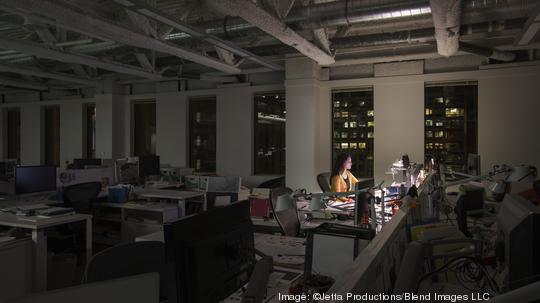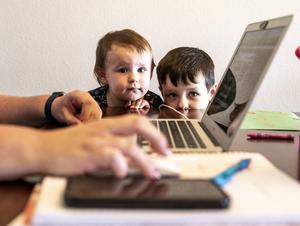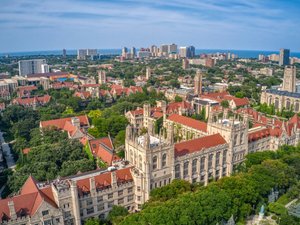
Raising venture capital can be one of the most challenging parts about running a startup, but new data shows that it is especially difficult for Latinx women.
The report, released Friday from digitalundivided, shows that Latinx women led startups raised less than 1 percent of the over $400 billion in venture capital given to startups across the country since 2009. In 2017, there were more than 6,700 VC-backed startups that were led by women, but less than 2 percent of them were led by Latinx women even though they make up about 17 percent of the U.S. women’s population.
“This data is really important because it allows us to quantify something that we’ve had assumptions about,” said Valeska Toro, the lead researcher on the report and the founder of New York startup Sola Travelers. “Now we can really have a conversation and talk about it from a factual place.”
Digitalundivided is an Atlanta-based organization that encourages black and Latinx women entrepreneurs to build tech companies. They offer programs, like their tech incubator, to help remove barriers, and create more inclusive tech and startup communities. To create the report, digitalundivided reviewed over 8,000 U.S.-based startups and companies located in the Crunchbase, Pitchbook and Mattermark databases, as well as using their own internal data. Digitalundivided did a similar study on black women entrepreneurs in 2016.
The new report, though, is the first of its kind showcasing baseline data on Latinx women entrepreneurs, Toro said. And though there’s many factors that contribute to female Latinx entrepreneurs receiving less VC funding than their white and male counterparts, Toro said much of the disparity stems from lacking the kind of support needed to get a business off the ground.
Latinx entrepreneurs typically don’t have the financial support from family and friends to quit a job to pursue their company or participate in a multi-week accelerator program in another city, Toro explained.
Additionally, if a Latinx entrepreneur is a first-generation American or an immigrant themselves, they often haven’t had time to build personal and professional relationships that could help them launch and fund a business.
“For Latinas, we have our own unique challenges, and we have our own cultural barriers and things that we deal with,” Toro said. “In many cases, our families are looking to us and we’re the ones actually assisting our families.”
In Illinois alone, digitalundivided’s data shows only one female Latinx founder that has raised capital. Toro would not disclose who the entrepreneur was, but the report says the person raised $1.8 million. To be included in the data, founders had to be leading “technology startups that are scalable businesses,” Toro said.
Nationwide, the states with the most female Latinx founders are California (29), New York (13) and Texas (5).
Kristen Sonday, a female Latinx entrepreneur in Chicago, is the co-founder and chief operating officer at Paladin, a Chicago and New York-based SaaS startup that helps law firms, Fortune 500 legal teams, and law schools manage and track their pro bono work. Paladin has raised about $2 million in funding from Chicago-based Hyde Park Venture Partners and Mark Cuban.
“I’ve encountered a lot the same issues that we continually talk about as female founders, encountering subconscious bias in navigating networks,” Sonday said. “Investors tend to invest in people that look like them and who fit the pattern of what success looks like in tech."
New data from Chicago Blend, an initiative examining the diversity gap in Chicago’s tech community, shows that 75 percent of Chicago's VC industry is male and 86 percent of them are white.
Sonday and her co-founder Felicity Conrad attribute much of their startup’s success—its ability to grow and raise money—to the accelerator programs they’ve participated in. Paladin was in the Techstars Chicago 2017 class and Sonday was one of the founders in the first cohort of the Latinx Incubator, a joint program between 1871 and the Illinois Hispanic Chamber of Commerce.
“Being a part of the IHCC community and the Techstars community were really essential in introducing us to investors who were well aligned with what we’re working on,” Sonday said.
Desiree Vargas Wrigley, the founder and CEO of Chicago startup Pearachute, is another local Latinx entrepreneur that has raised capital. Her startup has raised $1.9 million in VC funding, according to Crunchbase.
Though most of the data in digitalundivided's report shows Latinx women being underrepresented in VC funding, one encouraging finding showed a massive jump in the number of Latinx women that raised more than $1 million in VC funding since 2010. In 2010, there were only three. By 2017, that figure had jumped to 58.
"Investors tend to invest in people that look like them."
Additionally, the data shows that over the last 10 years, Latinx women-led startups raised $1.36 billion in venture and angel funding, with a significant portion of that raised in 2017.
“This [data] is also a celebration,” Toro said. “It’s a celebration of the pioneers that have been able to create tech startups and raise funding, because we know that in many cases, there were a lot of hurdles and challenges, and these women are really phenomenal.”
Toro said the increase in capital from 2010 to 2017 can be attributed to the growing population of Latinx women that are educated and pursuing careers in tech, and who have in many cases been supported by programs, accelerators and incubators designed for Latinx entrepreneurs.
In Chicago, the Latinx Incubator has generated 39 Latino entrepreneurs, raised more than $2 million and created 82 jobs, according to its website. There is also the Berwyn Tech Entrepreneurship and Technology Center in Berwyn, Illinois, and Latino Techies, which hosts regular meet-ups in Chicago. But nationally, not every city has programs like these.
“The fact that we have so many Latinx entrepreneurs in our country that don’t have a program like this is a huge problem,” said Veronica Aguilar, the director of the Latinx Incubator. “We need to create an ecosystem that is more fluid, comprehensive and reaches across borders so that we can pull in the best resources, bring in the best incubator programs and bring in the best venture capitalists.”
Editor's note: An earlier version of this article misstated that Paladin was funded by Hyde Park Angels, not Hyde Park Venture Parters.








